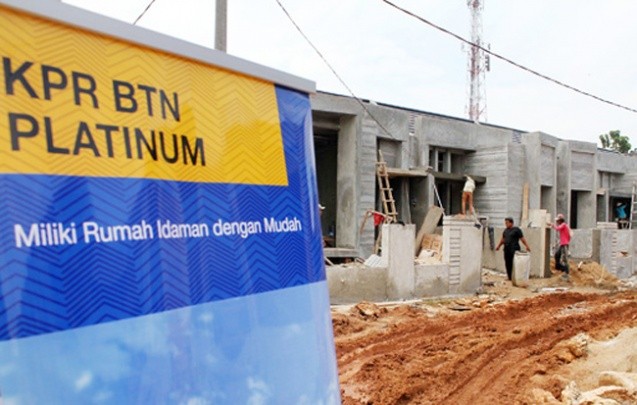Popular Reads
Top Results
Can't find what you're looking for?
View all search resultsPopular Reads
Top Results
Can't find what you're looking for?
View all search resultsBTN profits drop more than 90% in 2019 as bad loans, costs rise
Publicly listed state lender Bank Tabungan Negara's profits plummeted by more than 90 percent last year as nonperforming loans and costs of funds rose amid a challenging business climate for the banking industry.
Change text size
Gift Premium Articles
to Anyone
P
ublicly listed state lender Bank Tabungan Negara's (BTN) profits plummeted by more than 90 percent last year as nonperforming loans and costs of funds rose amid a challenging business climate for the banking industry.
The mortgage-focused bank booked Rp 209.26 billion (US$15.3 million) in profits in 2019, down by 92.5 percent year-on-year, BTN president director Pahala N. Mansury said on Monday. The sharp decrease in profits was caused by BTN's decision to comply with new accounting standards that require loan loss provisions to cover both good and bad loans, he said.
As a result of the implementation of Accounting Standard 71, which took effect this year, BTN’s loan loss provisions almost doubled, jumping by 85.4 percent to Rp 6.16 trillion in 2019, from Rp 3.29 trillion in 2018.
Pahala also blamed increasing costs of funds for the bank’s nosediving profits last year.
“Higher costs of funds were putting pressure on our ability to create profits last year,” he said during a press briefing in Jakarta. BTN’s costs of funds went up to 6.1 percent last year from 5.77 percent in December 2018.
The bank also recorded a jump of bad loans in 2019 as Pahala said BTN’s gross nonperforming loans (NPL) skyrocketed from 2.78 percent in 2018 to 4.78 percent last year, nearing the 5 percent level considered healthy.
Loans, meanwhile, grew 7.36 percent to Rp 255.82 trillion in 2019, higher than the broader banking industry’s 6.08 percent loan growth in 2019, the lowest since 2009, as weak economic activities took a toll on local lenders.
Economists have warned that rising bad loans during a global economic slowdown and tight liquidity in a low interest rate environment would pose major challenges for Indonesia’s banking industry going into 2020.
BTN’s remedial and wholesale director, Elisabeth Novie Riswanti, said the bank would try to sell its NPL to other parties to improve the bad loan ratio. Potential takers include state-owned secondary mortgage market company PT Sarana Multigriya Finansial (SMF) and asset management firm PT Perusahaan Pengelola Aset (PPA), she added.
“We will also auction collateral assets from the bad loans and offer them to developers and investors in the future,” Elisabeth said.
Pahala forecast that such a measure would hopefully improve its NPL ratio to between 3 and 3.5 percent by the end of this year.
BTN’s finance director Nixon Napitupulu explained the jump of the bad credit ratio by its decision to consider low-quality loans, particularly in the commercial high-rise segment, to be included as NPL.
“We decided to consider loans that have been restructured more than two or three times that we deemed to not have good prospects for NPL so that we can sell them to other parties,” he said.
Shares in BTN, traded on the Indonesia Stock Exchange under the code BBTN, closed at Rp 1,795 apiece on Monday, up 1.7 percent from the previous trading day. The stocks have slumped nearly 30 percent in the past year, underperforming the broader benchmark Jakarta Composite Index’s 9.7 percent drop.










